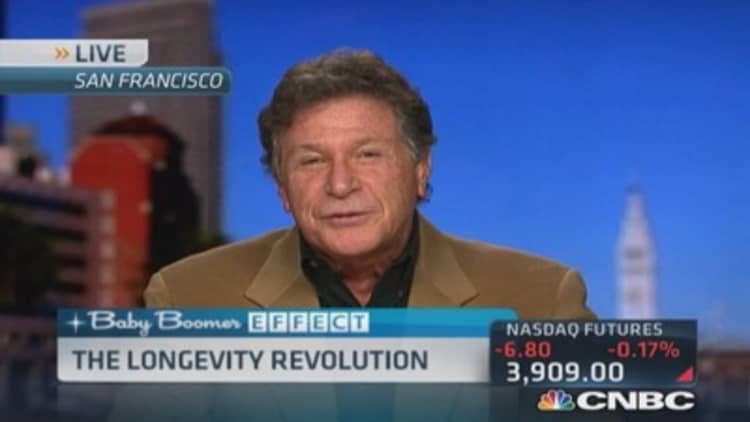The TV "finangelist"—or financial evangelist—is signing off. Credits are rolling as she takes one more question from the audience. But wait—something pops into her head. "Oh," she says, "if you don't remember a thing from tonight, be sure to remember to get a revocable living trust!"
"What did I miss?" viewers think, grabbing for the DVR remote. Could this be the grail, the sacred key to protecting their "most precious assets" from financial chaos? As it turns out, not so much. But a revocable trust and its prison-guard brother, the irrevocable trust, can help financial advisors resolve issues for clients in certain situations, particularly in states with intricate and costly probate processes.
Some parents use such trusts to make provisions to appoint a guardian and successor trustee if both of them should pass away, "so no assets flow to some family member they didn't select," said Doug Kinsey, a certified financial planner and chief investment officer of fee-only wealth management firm Artifex Financial Group. Kinsey sees the trust as allowing clients to have more control over the disbursement of assets—even in death.
Privacy vs. probate
The big draw for most clients is privacy; as a rule, living trusts don't go through probate. The contents of some wills, because they are public and are read publicly during probate, can comprise juicy fodder for social media. Including sensitive matters inside a revocable trust can spare reputations, "especially if you have a provision you don't want publicized, like disinheriting a child," said E. Edwin Eck, former dean of the University of Montana Law School and new chief of the state's Office of Consumer Protection. "The whole idea of privacy is big in Montana," he added.
Read MoreWhen advisors tell clients they can't retire
In the case of an irrevocable trust—often used for minors or diminished-capacity adults—if a child and trustee disappears into, say, a tropical rain forest, both attorney and financial advisor must don their deerstalker hats and start hunting down the current value of the trust.
"Someone has to have ownership of the assets, and that is the trustee," said Adam Gaslowitz, a trial lawyer specializing in complex fiduciary litigation and partner in law firm Gaslowitz Frankel. "You've got to give the trustee authority to access the money."

But, of course, accidents and temptation can take over. "The best choice is a corporate fiduciary, such as a bank," Gaslowitz said. At the very least, advisors should be sure a new client's trustee is bonded. Even people with power of attorney are seldom bonded, and lawyers will often waive the requirement, he said. "If they can't qualify for a bond, they shouldn't be a trustee."
One big trend, explained some industry experts, is grown children bringing in parents to create a trust that will protect their future inheritance. Heirs of baby boomers want to be trustees on irrevocable trusts in order to protect the estate from their parents' future medical and nursing-home bills.
And some want to shut away assets to establish a five-year record to qualify their parents for Medicaid. Medicaid planning has become a specialty in itself, but program officials are on to these efforts and may one day close the loophole. Gaslowitz said he's "not a big fan" of such practices.
"People save their whole lives so they can be taken care of," he said. "And being a bankrupt parent is not the way they want to go out."
Read MoreAdvisors must connect to Gens X, Y
Attorney Edward Kabala, partner with law firm Fox Rothschild, pointed out that even trustees "with the best intentions" might borrow from a trust, intending to replace the funds. "But then the beach house floats away," he said … and there goes the money.
A revocable trust does allow people who own property in multiple states to avoid having to probate a will in each of them. In Pennsylvania, home to certified financial planner Diane Pearson of Legend Financial Advisors, the cost of probate is easier than other states. "If clients have the properties in a revocable trust, then probate can happen here," Pearson said.
Advisors, attorneys team up
Locally, people hear about revocable trusts, along with annuities, at seminars often run by attorneys, according to Pearson. "I discuss living trusts with every client within the first couple of meetings—regardless of their age—along with living wills, the last will, powers of attorney and beneficiary designations," she said. "It is that important."
Pearson added, "It's hard for people to talk about dying, [so] I present it as a business conversation. They're taking care of those they love."
Read More5 ways to win over Gen X investors
Pearson touches on the advantages of living trusts, such as an irrevocable trust's ability to protect assets in excess of the current $5,350,000 state and federal limit from taxes. The big disadvantage is losing use of those assets. At that point in a client conversation, she introduces an estate attorney whom she has already vetted.
Kabala works "as a team" with Pearson and other financial advisors.
"When we want to know what the assets and liabilities are, that's where the advisor comes in," Kabala said. "The advisor usually sees people more frequently than we do. They may have some opinions that can add counterbalance in decisions. Clients usually tell their financial advisor more things than [they do] their lawyer."
In an irrevocable trust, yes, assets can be protected, but putting my assets out of my control to beat my creditors doesn't seem a good trade-off.Edward Kabalaattorney and partner at Fox Rothschild
In general, however, Kabala sees little need for living trusts among average clients, whose assets often amount to no more than a house, an insurance policy and a pension. (Exceptions would be clients living in probate-heavy Florida, California or Arizona.)
"They can put everything in joint names with right of survivorship," he said. "Probate in states like Pennsylvania may only take 15 minutes."
A power of attorney—which itself costs about $125—plus a simple will, a health-care directive and a living will cost clients, when combined, about half the approximate $3,000 needed to draw up a revocable trust.
Read MoreEmpowered widows make new choices
Contrary to expectations, "there is no creditor protection in a revocable trust," said Kabala. "Creditors have a right to get their money," he said. "In an irrevocable trust, yes, assets can be protected, but putting my assets out of my control to beat my creditors doesn't seem a good trade-off."
Advisors can help. To that point, 70 percent of probate fights come from lists of assets not matching ownership documents, Kabala said. The wrong account gets emptied, and someone is left out. Impress clients with the value of tracking assets. "It's important that people learn this from advisors," Kabala said. "They can provide a much-needed service if they do it right."
—By Maureen Nevin Duffy, special to CNBC.com




